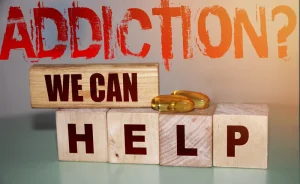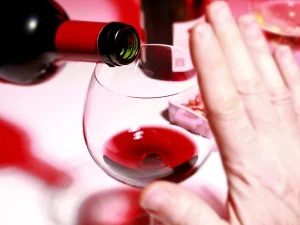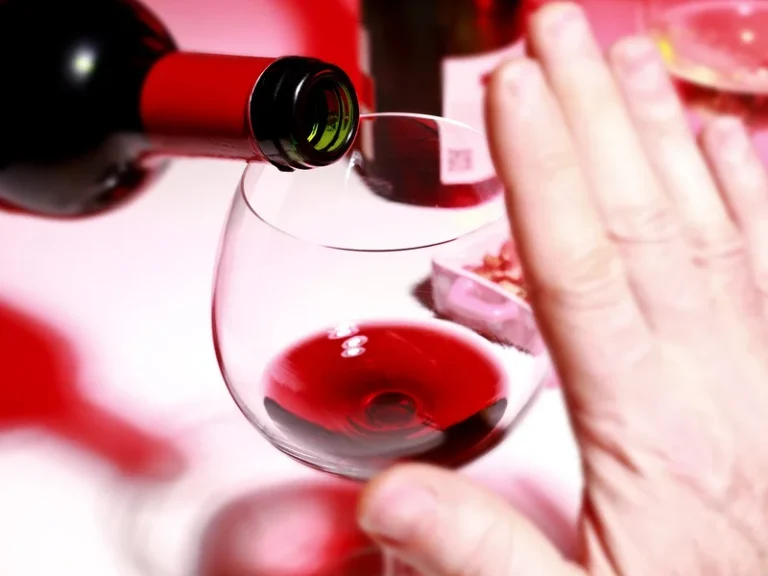
However, their use is carefully monitored due to potential for abuse and interaction with alcohol. Alcoholics Anonymous and other 12-step programs can be beneficial for some individuals. Trembling or shaking in the hands, legs, or entire body is another frequent symptom. Sweating, particularly in the palms or forehead, often accompanies these physical signs. Alcohol is a natural disinhibitor — meaning it can cause you to make choices you may not make while sober.
How do I stop anxiety after drinking?
- There is no research to suggest certain types of alcohol are better or worse for anxiety.
- If you or someone you know may be in danger, call 911 or the National Suicide and Crisis Lifeline at 988 right away.
- Panic attacks are sudden episodes of intense fear that trigger severe physical reactions.
By the time I reached my early thirties and evolved into a nearly daily drinker, I noticed new symptoms. The problem is that our brain will overcorrect for the depressant effects of alcohol in our system. It tamps down our body’s fight-or-flight response by suppressing the amygdala. This is not to paint a hopeless picture but to give you an honest look at the complex relationship between alcohol and anxiety.
Alcohol and Anxiety: Does Alcohol Cause Anxiety and Panic Attacks?
Try drinking water or a club soda with lime between each cocktail to avoid dehydration and reduce mindless alcohol consumption. Alcohol’s impact on neurotransmitters in the brain, such as serotonin and gamma-aminobutyric acid (GABA), can disrupt the body’s natural balance and increase susceptibility to anxiety attacks. Moreover, alcohol-induced changes in sleep patterns and overall brain function can further exacerbate anxiety symptoms, potentially culminating in full-blown anxiety attacks. Working with a therapist generally involves regular talk therapy sessions where you discuss your feelings, problem-solving strategies, and coping mechanisms to help with your condition. Psychiatrists are doctors who have specialized training in diagnosing and treating complex mental health conditions through medication management.
Build A Support Network
Drinking heavy amounts of alcohol regularly can also cause your body to become dependent upon the chemical reaction that occurs in your brain. When you stop drinking, the withdrawal symptoms are a result of your body continuing to crave the stimulation that alcohol once generated. Trying to quit alcohol on your own can sometimes lead to developing uncomfortable withdrawal symptoms that impact your physical and mental health.
- Many individuals will use alcohol as an unhealthy coping tool to reduce symptoms of anxiety.
- This phenomenon, often referred to as “hangxiety,” stems from alcohol’s impact on neurotransmitter levels and its ability to disrupt the body’s stress response system.
- This means that the levels of serotonin and other neurotransmitters are altered to create a sense of calm in the drinker.
- Try relaxation techniques like deep breathing, meditation, yoga, or tai chi.
- You may also need to be concerned about having a panic attack from quitting alcohol if you’ve experienced one in the past or have an anxiety disorder.
- Research has shown that self-compassion can reduce anxiety and depression symptoms.
- If you or a loved one have an addiction to alcohol, evidence-based treatment may be the best option to alleviate severe withdrawal symptoms and stay on track to sobriety.
According to the DSM-5 TR, panic attacks can be either expected or unexpected. At least one of these panic attacks must be followed by a one-month period of the person experiencing intense fear and avoidance behaviors around subsequent panic attacks. Dizziness is a common symptom of panic attacks you should be aware of. In some cases, this could be secondary to taking short, shallow breaths (which affect your blood chemistry). Our health care providers can answer your questions about the effects of alcohol or provide referrals for medical advice.
- When you stop drinking, the withdrawal symptoms are a result of your body continuing to crave the stimulation that alcohol once generated.
- Both acute intoxication and cessation of prolonged drinking may lead to increased anxiety and panic episodes in susceptible individuals.
- Drinking alcohol on a regular basis can result in your body building up a tolerance to this substance over time.
- This is why you may find yourself wide awake in the middle of the night if you have had a lot to drink the night before.
- The National Institute on Alcohol Abuse and Alcoholism estimates that approximately 20 percent of people who experience panic disorder also abuse alcohol.
Emotional Effects of Alcohol: Why Drinking Makes You Unstable

This relationship creates a cycle where anxiety fuels drinking, and drinking exacerbates anxiety, potentially leading to both alcohol use disorder and worsening anxiety symptoms. If you are concerned that you are experiencing panic attacks as a result of your alcohol consumption, it is recommended that you cut down or completely stop drinking. When you experience alcohol-induced panic attacks, this cycle can become even more frightening and potentially result in a long-term panic disorder. Alcohol acts as a sedative, often lowering the feelings of anxiety or panic that you may be experiencing.
Social embarrassment

Treatment of alcohol withdrawal will typically begin with a detox program and transition to an inpatient or outpatient addiction treatment facility. Alcohol consumption may also cause hormone imbalance, alter testosterone levels, and lead to increased cases of panic disorder as a result. This means that the levels of serotonin and other neurotransmitters are altered to create a sense of calm in the drinker. Because denial is common, you may feel like you don’t have a problem with drinking. You might not recognize how much you drink or how many problems in your life are related to alcohol use.
However—and this is a big however—alcohol abuse can make panic disorder worse. Dealing with anxiety after quitting drinking can be a https://ecosoberhouse.com/ challenging but crucial aspect of the recovery process. As the body adjusts to sobriety, individuals may experience heightened anxiety due to the absence of alcohol’s sedative effects and the underlying issues that may have initially led to substance use.

Health Categories to Explore
You can’t heal or manage an anxiety disorder and continue drinking any more than you can lose weight and eat McDonald’s every day. It was not possible to manage my anxiety or depression without sobriety. The more someone drinks, the harder the brain must work to restore balance, intensifying anxiety symptoms as the alcohol wears off. While alcohol can have relaxing effects shortly after a few drinks, changes to your brain chemistry can lead to spikes of anxiety as the alcohol wears off. Many people are familiar with the feeling of having a few can alcohol cause panic attacks drinks to help them ease into social situations.

Restlessness or agitation becomes noticeable, with individuals finding it difficult to sit still or relax. Sleep disturbances are common, including trouble falling asleep or staying asleep throughout the night. These effects may manifest through physical sensations and changes in behavior. As individuals continue to use alcohol to cope with anxiety, they may develop tolerance. This means they need to consume more alcohol to achieve the same calming effect. Increased tolerance can lead to a cycle of escalating alcohol consumption.

